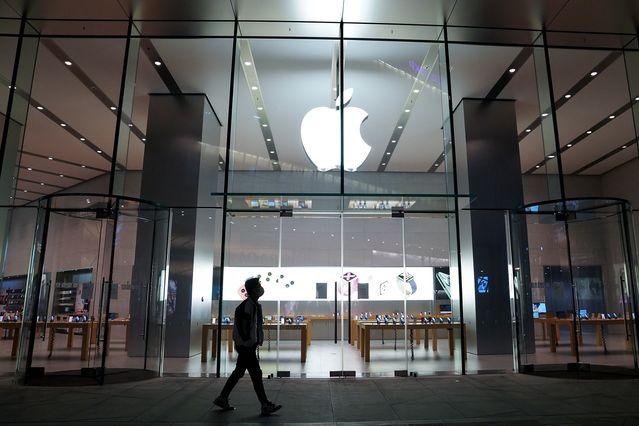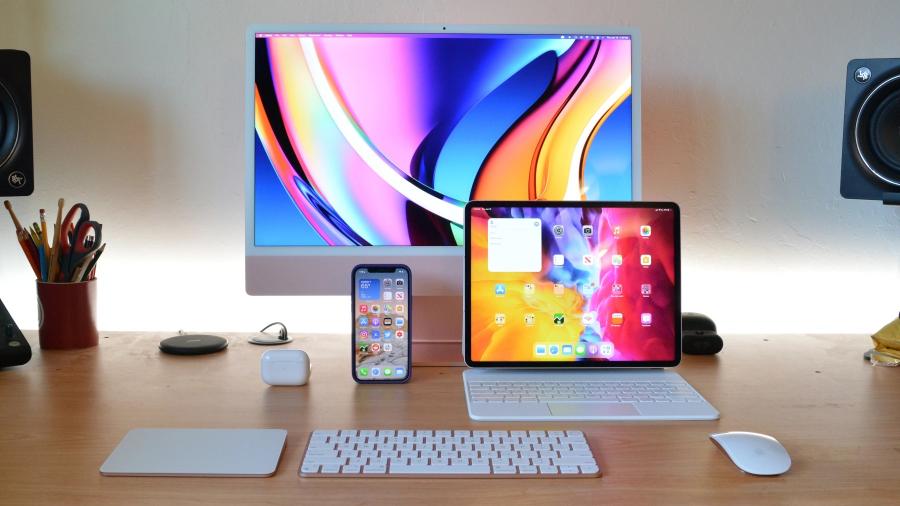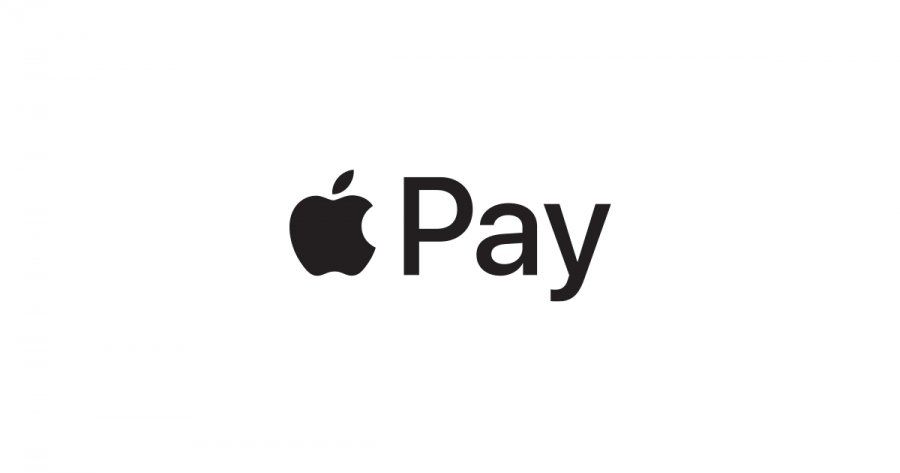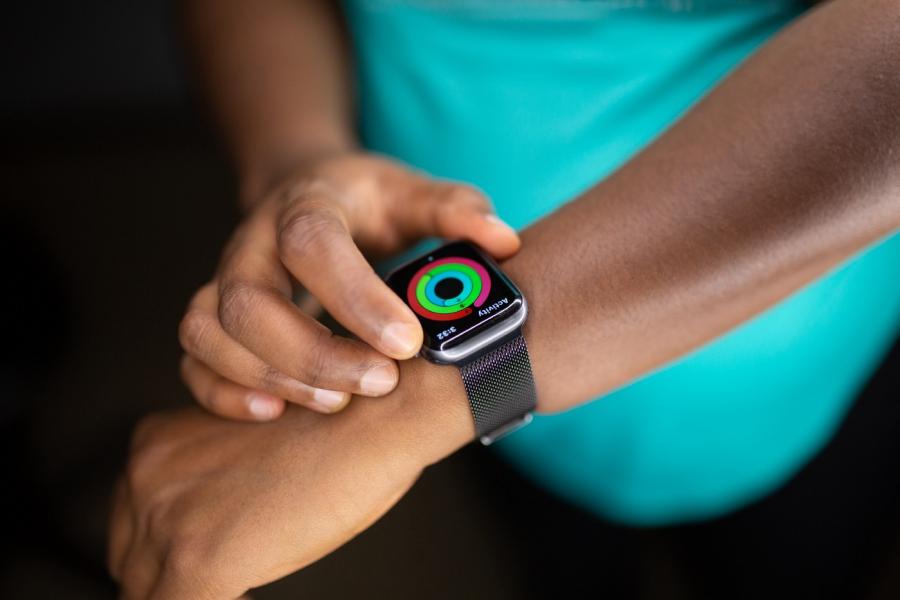
Apple's surveillance system in contemporary society
In contemporary society, Apple has become a huge part of our online and offline sphere. Many individuals depend on their digital devices to connect with people, do their work, do homework, etc. That is why Apple has created numerous devices to make doing multiple tasks easier and more efficient. However, that has caused many concerns over their privacy and data mining.
In this article, I examine if and how Apple surveillances its users and influences their behavior through multiple devices. I will base my research on other study materials and other internet sources. Furthermore, I will research if people understand their privacy issues when using their Apple devices. To sum up, I will investigate whether Apple violates its customers' privacy to gain information and manipulate their behavior for their own interests without their consent and knowledge.
Apple Inc.

Apple Inc., originally Apple Computer, Inc., is an American technology company based in California that makes computers, smartphones, tablets, computer accessories, and software. This was the first prosperous individual computer firm that also popularized the graphical user interface.
Apple Inc. originally started in the basement of Steve Jobs. Jobs and his colleague Stephen G. Wozniak’s success came after Wozniak built a disk controller that enabled the inclusion of a low-cost floppy disk drive, which made data storage and retrieval quick and efficient. The Apple II thus became the computer of choice for thousands of novice programmers due to its ample storage and manipulation capabilities. However, enormous success came with the invention of the “i” products, such as the iMac. It was the first successful product introduced in the series, followed by the iTunes computer program for listening to music and converting it to MP3 format. Then came the iPod, a portable device that let one listens to MP3 music, and around the year 2007 came iPhone. A real game-changer in the smartphone industry and the one that shot Apple to being of the top leaders in the industry. Apple Inc. also came with other devices and programs, such as the iPad and iWatch. Furthermore, the initial “i” indicates the Internet, as well as the notion that the gadget is a personal device created for the user. Apple has proven to be one of the top leaders in the technology industry.
Apple’s devices and their appurtenance in modern society

Throughout the years, Apple Inc. has created numerous devices that have become a huge trend among individuals because of their features and their beautiful appearance. According to Beattie (2021), the aesthetics and usability of Apple devices are excellent. Hence, many use Apple’s products but are not aware of the risks they may pose to the community. That is why in this paragraph, I will analyze some of Apple’s products and see if there is a potential risk of privacy violation and information theft of their consumers for their own interests.
The advancement of technology has evolved throughout the years, with everything becoming more compact, quicker, and smaller. Hence, the mobile phone has evolved into an indispensable component in modern culture. It's no longer just a hand-held gadget for making a brief call, but a Smartphone, which is a miniature computer. In addition, iPhone was the first Smartphone to become famous. However, it became evident through research that iPhone stores information about its users without their consent. According to Cahill (2011), the Maps program on the iPhone and other smartphones asks if the user wants to utilize their whereabouts to receive instructions, and the user can turn that feature on and off at their leisure. Furthermore, he says that even though consumers don't want their whereabouts tracked, the iPhone still tracks their locations. Here comes the matter of privacy: “The thing about privacy, though, is that it’s an abstraction—right up until your identity is stolen or your preferences are exploited” (McCeary, 2008). That is to say, it is a violation of one’s privacy and a public matter. It should hold the one exploiting their user’s privacy accountable.
Hence, if an app wants to access data for study or other purposes, it should require the customer's permission and must not share personal information with third parties.
That is to say, it is a violation of one’s privacy and a public matter. It should hold the one exploiting their user’s privacy accountable
Recently, Apple has tried to present itself as a pro-privacy company. The company has launched several new features to keep its user’s data private. Before, Apple used to track users' whereabouts without their consent. However, that has changed with one of their newest features where the iPhone asks its users if they want to allow an app to track their data. Other new features that Apple has released are; no tracking pixels (running pictures through proxy servers to avoid monitoring pixels that inform email marketing companies about the place and time the emails have been opened), private relay (a program that hides one’s IP address operated by Apple and a third-party proxy server to remove identifiable details), hide my email (hides the users' email by creating another false on), and app privacy report ( tells one about which app sell data and are using one's camera and microphone without their consent). It seems that for Apple, it's no longer merely a marketing slogan or a business vision. It's now a big Apple push to set its products apart from Android and Windows competitors (Leswing, 2021).
However, a new report by Schuman (2022) stated that despite Apple's privacy policy, which allows users to opt out of tracking and data sharing, the corporation would enable application developers to gather massive amounts of data from Apple customers. Snapchat and Facebook, for example, have been permitted to continue exchanging user-level signals from iPhones as long as the information is anonymized and aggregated instead of attached to particular customer identities. Another report by Rubio-Licht (2022) claims that Apple and Meta allegedly handed over customer information to cybercriminals posing as law enforcement authorities. The two big corporations have disclosed customer data such as locations, contact information, and IP addresses. It seems that Apple has a different understanding of privacy, and for many, it is still a debatable issue. That refers to a new form of capitalism, namely surveillance capitalism. It is a term used by Zuboff (2019) to describe the process of collecting human experience as a free material to transform it into a behavioral one. This sort of information is mainly used to guess what someone would do and to capitalize on those behavioral predictions derived from user tracking. Although many users decline access to their personal information, many devices, programs, and apps still steal their users’ personal data, including Apple. So, to say that Apple has become a privacy-oriented company is to dismiss the proof that shows otherwise.
Apple Pay and security

Nowadays, mobile banking allows users to make payments at any time and at any place. Compared to conventional payments, mobile banking provides a more convenient, quicker, and secure method of transactions. That is why Apple has created its own mobile payment system, Apple Pay.
Apple Pay is designed to assist with quick payments so users don't have to look for their bank cards. Furthermore, many people believe that Apple Pay is safe and that it does not disclose your credit card details to businesses. As a result, many customers are unconcerned about their income being stolen when they employ Apple Pay services. It also makes it simple to checkout with just a tap of the thumb, and after confirmation of the transaction, payment is complete. “It is easy and simple for everyone to use and it generates an integrated security in both hardware and software, which provides an easier and safer way to conducting transactions than swiping your credit or debit cards,” says Chen (2016) in her research. Furthermore, she explains how Apple uses “tokenization” technology to make our data and payments secure. She says that a token serves as a link between an account number and a reference. In addition, tokenization is compatible with a cryptogram, which produces a 16-digit code for every transaction. The cryptogram recognizes the gadget and ensures that the transfer is secure and complete. Chen also mentions that there is a specialized component in the iPhone that stores most of the individual's transaction data, including banking information that won’t be uploaded to Apple's servers or iCloud.
It seems that Apple Pay is still not that safe of a method, and people should be more aware of the risks it poses
However, her research seems to be somewhat lacking and outdated. A recent study by cyber security specialists at the University of Birmingham and Surrey discovered that they could somehow reproduce the signal sent from transportation gateways to enable technology like Apple Pay when used on a store card reader (McMahon, 2021). This method will permit transactions of any value to be made instantly by convincing an iPhone that verification has occurred, putting Express Transit clients with Visa cards in danger of losing lots of money. According to cybersecurity experts, Apple and Visa had been alerted about the issue, but neither company had implemented a fix. Apple Pay is also vulnerable to hackers and thefts. It seems that Apple Pay is still not that safe of a method, and people should be more aware of the risks it poses. Consequently, with the new technologies, “it is critical to have a strong regulatory framework in place to address privacy issues caused by rushed innovation” (Newlands, et al. 2020).
Gamification and self-tracking apps

In this day and age of technology, one should not forget that everything one does can be collected, saved, and tracked (Harcourt, 2015). That can be done without one being aware of it, through an engaging manner with the utilization of gamification.
According to Whitson (2013), gamification is based on measurement, such as tracking users' daily behaviors to measure and analyze them. The gathering of data allows routines of feedback and behavior modification that are promoted as a game. Gamified self-tracking applications are perceived and accepted as a game since they are voluntarily entered into, introducing the essence of the game into somewhat repetitive activities.
Nowadays, smartwatches, such as the Apple Watch, are popular because they allow consumers to connect, answer and receive emails and messages, measure health and fitness levels, and also make phone conversations while on the road. Although they can be fun and have many advantages, they also have drawbacks. The Apple Watch is a fitness tracker that keeps records of calories, activity sessions, and standing hours. Hence, when these characteristics are included in the Apple Watch, fitness tracking takes on the appearance of a fun game. According to Lynch, a blogger (2019), Apple Watch tracks your daily and monthly move goals. A bright and enticing ring appears when a person completes their daily goals, and when all of the move goals are completed, it becomes a fully closed circle. There are various types of objectives that one must achieve daily. There's also a feedback system to keep the user motivated and ensure that they're sticking to their commitments. The system will alert the user if he/she has not achieved the day's objectives. As a reward for fulfilling goals, such as monthly goals and streaks, the user will receive a badge to add to their collection. The Apple Watch also alerts the user when a buddy accomplishes most of the objectives or exercises and feels a degree of social connection and friendly competition to stay motivated.
Although Apple may have provided better privacy methods, there are still some loops and tricks that enable others to collect user-driven data
In this regard, Mozilla (2021) claims that Apple Watch does not sell one’s information. In addition, Siri audio commands for tasks, such as scheduling timers, alarms, and controlling music, would be routed no longer over the web servers but instead processed on the device itself. Despite that, a new report by McKeon (2021) shows that the health records of over 61 million fitness app consumers got leaked when a third-party organization that enables visitors to synchronize their health information from their fitness apps did not correctly safeguard the data. That is a reminder that although Apple may have provided better privacy methods, there are still some loops and tricks that enable others to collect user-driven data.
The influence and the final verdict
To sum up my findings, Apple still needs to work on its privacy system and be more transparent about how they operate its programs and devices. The discoveries clearly show that Apple is not being truthful with its users and still shares their data with other parties. Not only Apple profits from it but the other party as well. The shared information often gets used to manipulate customers for their personal interests, such as through advertisements.
Hence, digitalization influences individuals in many ways, such as their behaviors, moods, beliefs, and moral system. People rely on apps rather than themselves to meet their goals and pay less attention to the dangers of those apps and their devices. Apple Watch, for instance, tries to set a certain criterion through their device of how one should behave, do, etc. In this context, it is concerning how no one questions Apple's system and how they actually use their consumers' data.
Furthermore, many would agree that consumers often disregard the dangers of the technologies, even though they are fully aware of them. Consumers also get easily influenced by digital apps and try to meet their standards for movements or how long to wash their hands (one of the newest Apple features). In this regard, more campaigns should be created to bring awareness about digital and personal privacy because there is a “need to recognize the importance of educating citizens about why privacy matters” (Shahin & Zheng, 2020). That is the only way to allow individuals to decide if they want to deliberately give away their data or protect their privacy and decision-making process without the influence of today’s technologies.
Reference:
Beattie, A. (2021, September 10). How Did Apple Get So Big? Investopedia.
Cahill, K. (2011). Apple iPhone Tracking Your Every Move? eDebate.
Chen, X. (2016). Information Security of Apple Pay. Theseus.
Harcourt, B. E. (2015). The Expository Society. In Exposed (pp. 1-28). Harvard University Press.
Lynch, A. (2019, August 29). The Gamification of the Apple Watch. Medium.
McCreary, L. (2008). What was privacy? Harvard Business Review, 86(10), 123-30.
Mozilla. (2021, November 8). Apple Watch. Mozilla.
Newlands, G., Lutz, C., Tamò-Larrieux, A., Villaronga, E. F., Harasgama, R., & Scheitlin, G. (2020). Innovation under pressure: implications for data privacy during the Covid-19 pandemic. Big Data & Society, 7(2), 2053951720976680.
Rubio-Licht, N. (2022, March 30). Apple and Meta reportedly gave customer data to hackers. Protocol.
Shahin, S., & Zheng, P. (2020). Big data and the illusion of choice: Comparing the evolution of India’s aadhaar and China’s social credit system as technosocial discourses. Social Science Computer Review, 38(1), 25-41.
Whitson, J. R. (2013). Gaming the quantified self. Surveillance & Society, 11(1/2), 163-176.
Zuboff, S. (2019). The age of surveillance capitalism: the fight for the future at the new frontier of power. Profile Books.